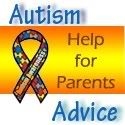The concept of interrupting makes no sense to a toddler. Anything that directs your attention away from her is threatening. After all, in a toddlers mind, the world and everything in it revolves around them and especially when it comes to mom and dad.
The Reasons it Happens
- Toddlers are not yet able to grasp that there are other people and activities that sometimes require your attention or capture your interest.
- A toddlers short term memory is not yet fully developed. This leaves them with the urgency to speak now before they forget.
- By the time your child is 3 or 4, she'll begin to understand what an interruption is and what the request "Please don't interrupt" means, and her short-term memory will develop enough that she'll be able to hold on to a thought (for a couple of minutes, anyway).
Here are some things you can to get this problem under control and help your toddler to be more independent when you are trying to have a conversation.
Start Early
From as early as 6 months old you can begin to instill certain principles and manners in your child. Talk to your child from birth. This will develop his self esteem and self worth.
Set Up the toys
Set up a play area for your child to learn to occupy himself while you are busy.Don't expect them to play on their own for very long. They will at some point begin to interrupt your conversation. This is where the training comes into play.
Tell them not to
By the age of 3 your toddler needs to be aware of what you expect from her when you are having a conversation or busy doing something. When they interrupt, firmly tell them that interrupting is not a nice thing to do and you will talk to them as soon as you are finished. Remember that 10 minutes to a toddler can seem like a lifetime so be conscious how long you are expecting them to wait. After 10 minutes, look to them and have a brief chat. Let them know you have not forgotten about them and that they are just as important as the other things you have to do.
You have to be consistent in this particular area. Learning comes with training and teaching. It's up to you to teach them what they need to know now and for later in life. Consistency is key here.
Read your toddler children books about manners and being polite. When your toddler forgets his manners remind him of the character in the book and what she has to do.
Model the behavior
Toddlers love to mimic their parents behavior. So follow these simple rules with spouse and other people.
- Don't cut your spouse or other people off when they are talking.
- Don't interrupt your child when she is talking to you. If you do cut her off when she is talking, apologize for doing so.
Soon your child will mimic your good manners and learn to admit her own mistakes when she makes them. An exceptional quality for any human being to have. Do the same with other gestures, such as please, thank you, pardon me, etc
A toddler learning and understanding the basic principles behind good manners, and when to use them takes time and everyone in the household should participate. These vital tools can be instilled in your children from toddler age by having patience, consistency and practicing. The earlier you start the better and when they reach their teens some of the harder work will already be under your belt.



































































0 comments:
Post a Comment